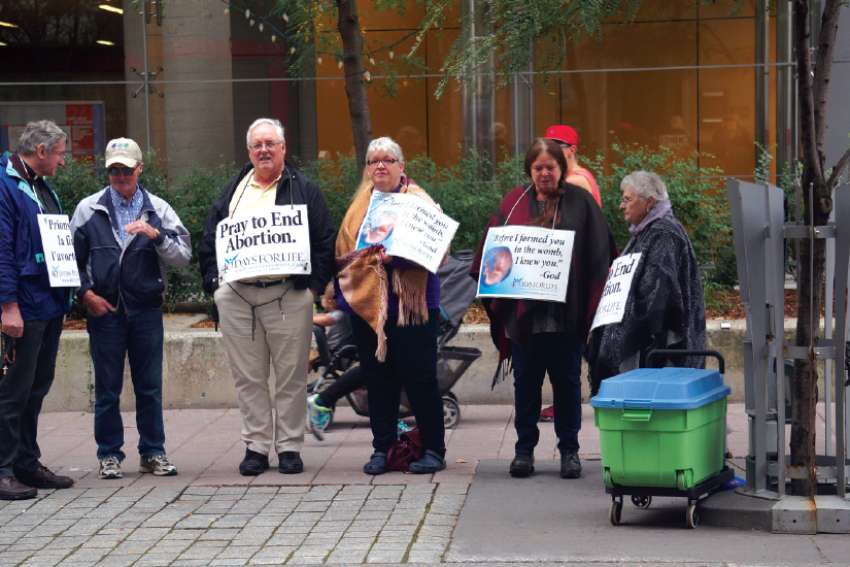The bubble zone law, implemented by Kathleen Wynne’s Liberal government, creates a protest exclusion zone around Ontario abortion clinics. Critics argue the law is an infringement on freedom of expression and were hopeful that Premier Doug Ford would honour an election commitment to review it.
Those hopes had been buoyed when Ford announced Aug. 30 that Ontario universities, some of which have opposed abortion protest groups on campus, must support free speech or risk funding cuts. However, a spokeswoman for the Minister of Children, Community and Social Services Lisa MacLeod said the minister “supports the bubble zone.”
During the leadership race for Progressive Conservative Party leader last spring, Jack Fonseca, senior political strategist with Campaign Life Coalition, asked Ford about the bubble zone law, “what we call the creation of no-free speech zones on public property.”
“We didn’t record the conversation, but he told us very clearly that he disagrees with the Liberal government’s censorship legislation,” Fonseca said.
Although the bubble zones remain, free speech advocates and pro-lifers are pleased the government will require every publicly funded college and university to post a free-speech policy that meets government standards based on the University of Chicago principles. They state that “universities and colleges should be places for open discussion and free expression; they “should not attempt to shield students from ideas or opinions” some consider “offensive;” and they must not allow the “obstruction or interference” of free expression that is legal.
“The government’s proposal is potentially a good thing for unpopular opinions and groups, including pro-lifers,” said John Carpay, a lawyer and president of the Justice Centre for Constitutional Freedoms that has represented many campus pro-life groups.
Ruth Shaw, executive director of the National Campus Life Network (NCLN), welcomed the Ontario government policy but wants to ensure it has teeth.
“We have learned in our job that universities don’t pay attention unless there are serious consequences,” she said.
“In the past 10 years there have been sanctions, discrimination and harassment of pro-life university students across Canada,” Shaw said.
Of the 20 to 30 pro-life clubs nationwide NCLN represents, “the majority has experienced discrimination at the hands of either the administration or the student union.”
Discrimination has come from student unions and from administrations that allow student unions to adopt pro-choice policies so that opposing clubs are vetted for the kind of material they can display, Shaw said. Administrations are also imposing massive security fees on clubs that wish to invite speakers.
As university students return to campus after the summer break, the worldwide 40 Days for Life campaign of prayer, fasting and vigils outside abortion facilities will go ahead in 415 cities worldwide, including 14 Canadian cities, from Sept. 26 to Nov. 4. Since 2007, participants prayed silently across the street from the Morgentaler abortion facility in Ottawa, but this year’s vigil will be held outside the 50-metre exclusion zone.
CLC researcher Paul Lauzon said 40 Days participants will still be able to “see the door of the abortuary” from their new location.


